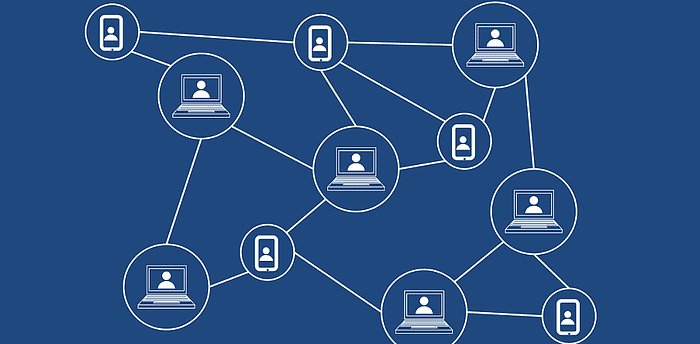The Future of Data Storage: Decentralized Cloud Solutions
Written on
Understanding Decentralized Cloud Storage
In today's digital landscape, the need for secure, efficient, and affordable data storage is on the rise. While traditional cloud services like Amazon Web Services, Google Cloud, and Microsoft Azure have long held market dominance, the emergence of blockchain technology and distributed networks is paving the way for decentralized cloud storage.
This article delves into the concept of decentralized cloud storage, outlining its benefits and its potential to transform how we handle data.
What is Decentralized Cloud Storage?
Decentralized cloud storage represents a novel method of data management that utilizes blockchain technology and distributed networks to provide a more secure, efficient, and cost-effective solution. Unlike traditional cloud storage that depends on centralized servers owned by a single entity, decentralized storage spreads data across a network of independent nodes. These nodes may be owned by individuals or businesses, collaboratively storing, managing, and retrieving data.
The process involves encrypting a file and breaking it into smaller segments, which are then distributed across a network of nodes. This method enhances security and prevents single points of failure, ensuring redundancy and improving data privacy and accessibility compared to conventional centralized systems.

Enhanced Data Security
A key advantage of decentralized cloud storage lies in its robust data security. Centralized systems store data on a single server or a cluster, making them susceptible to hacks, breaches, and server failures. In contrast, decentralized storage encrypts and fragments data, distributing it across multiple nodes. This significantly reduces the risk of unauthorized access and ensures data remains accessible even if some nodes go offline.
Cost-Effectiveness and Scalability
Decentralized cloud storage also provides a more economical alternative to traditional providers. By tapping into a distributed network of nodes, it can utilize underused resources, such as spare hard drive space available from individuals or businesses. This dynamic creates a competitive market that lowers storage costs.
Moreover, decentralized systems are inherently scalable; expanding storage capacity is as straightforward as adding more nodes. This allows businesses to easily scale their storage needs without substantial upfront investments in infrastructure.
Data Privacy and User Control
In conventional cloud storage systems, users often relinquish control over their data, raising concerns about privacy and ownership. Decentralized cloud storage resolves these issues by granting users full control. Through encryption and fragmentation, only the data owner, equipped with the proper decryption keys, can access their information.
Prominent Decentralized Cloud Storage Platforms
As decentralized cloud storage gains popularity, several noteworthy platforms have emerged:
- Filecoin: A decentralized storage network based on the InterPlanetary File System (IPFS), utilizing a blockchain-based marketplace for users and providers to exchange storage space.
- Storj: This platform merges blockchain technology with peer-to-peer networking to offer a secure and distributed storage solution, allowing users to rent out their unused space for STORJ tokens.
- Sia: A decentralized platform that harnesses blockchain technology for secure, private, and affordable cloud storage, enabling users to lease their spare storage and earn Siacoin.
Conclusion
Decentralized cloud storage holds the promise of transforming data management by enhancing security, cost-effectiveness, scalability, and user control. As blockchain technology and distributed networks develop, a shift towards decentralized solutions seems imminent, challenging traditional cloud providers. By adopting this innovative approach, businesses and individuals can enjoy a more secure, economical, and privacy-focused data storage experience.
The first video discusses the comparison between decentralized storage and traditional cloud storage, exploring which is superior.
The second video elaborates on decentralized storage, providing insights into its workings and benefits.
#decentralizedcloudstorage, #blockchain, #data-security, #datastorage, #cost-efficiency, #scalability
— — — — — — — — — — — — — — — — — — — — — — — — — — — — — — — — — — — — —
If you found this article informative, don't forget to like it! 🙂